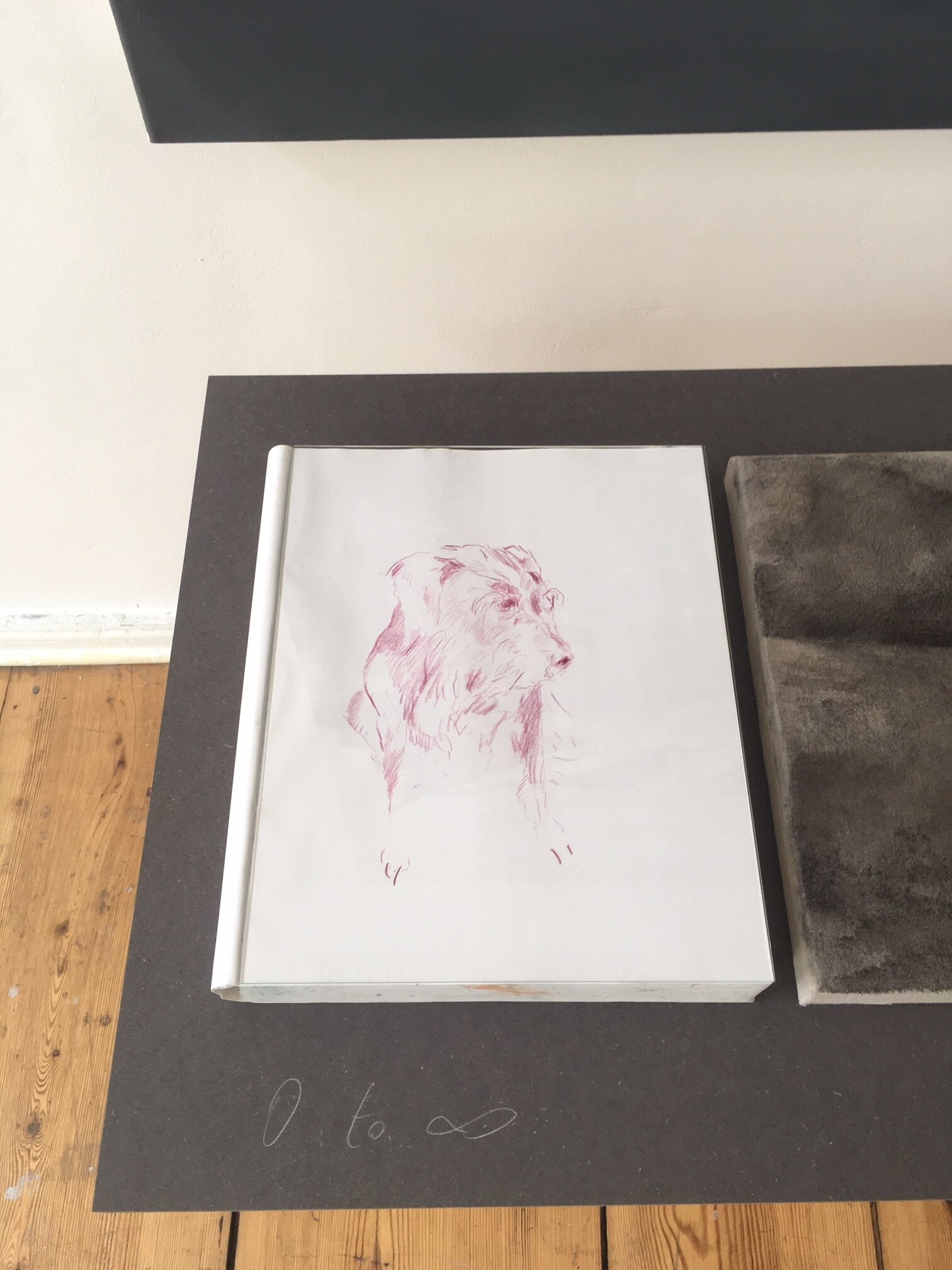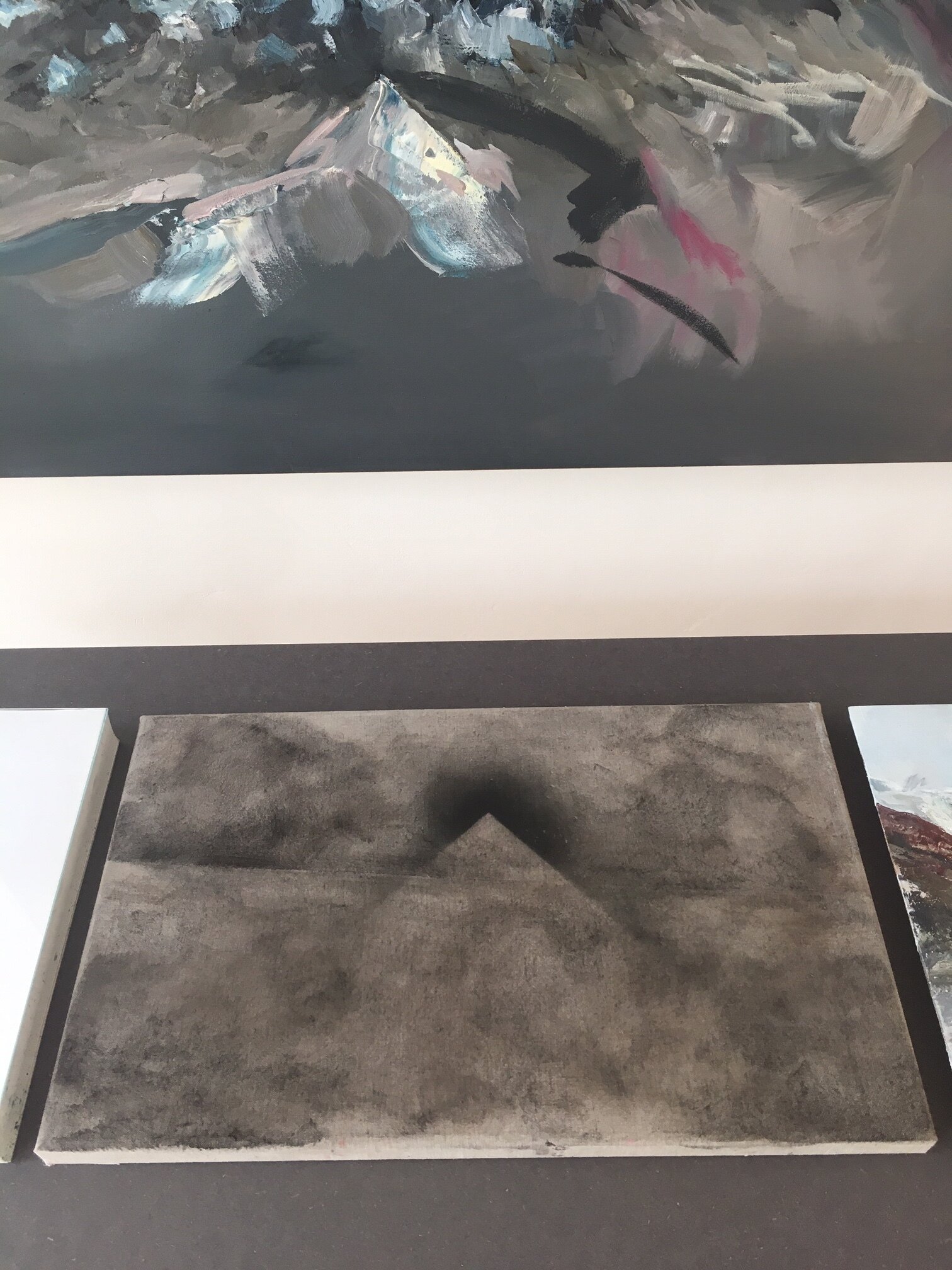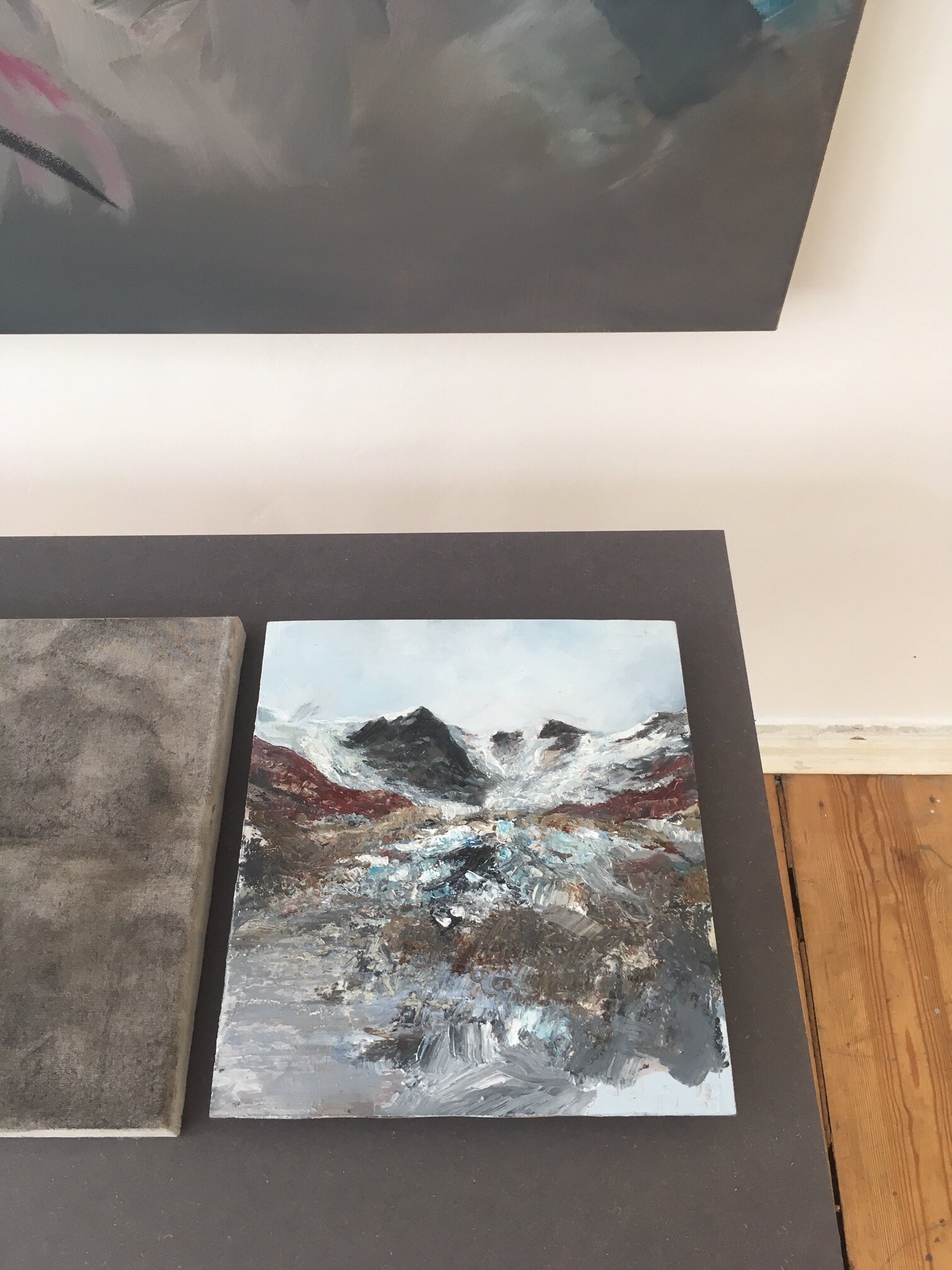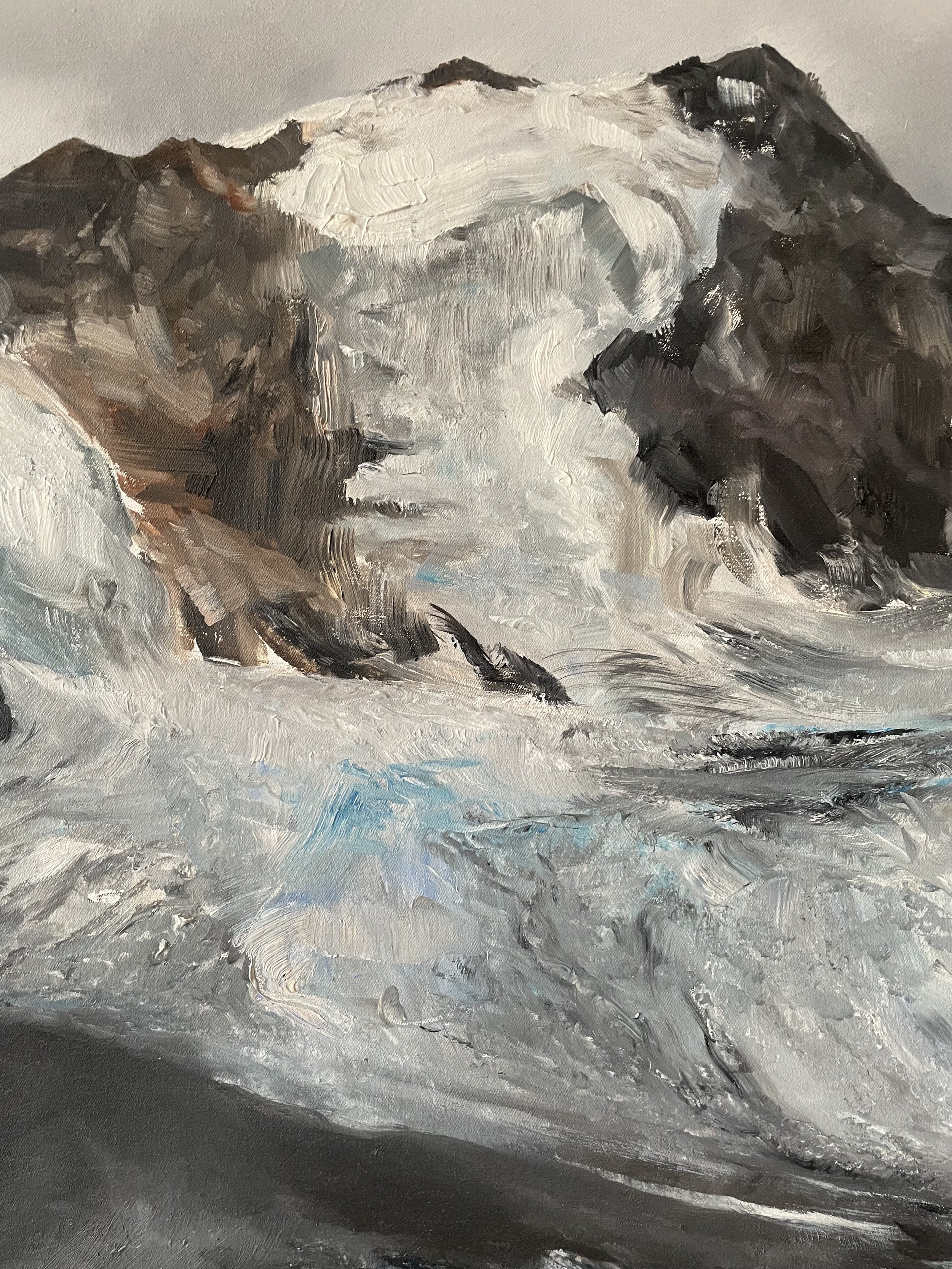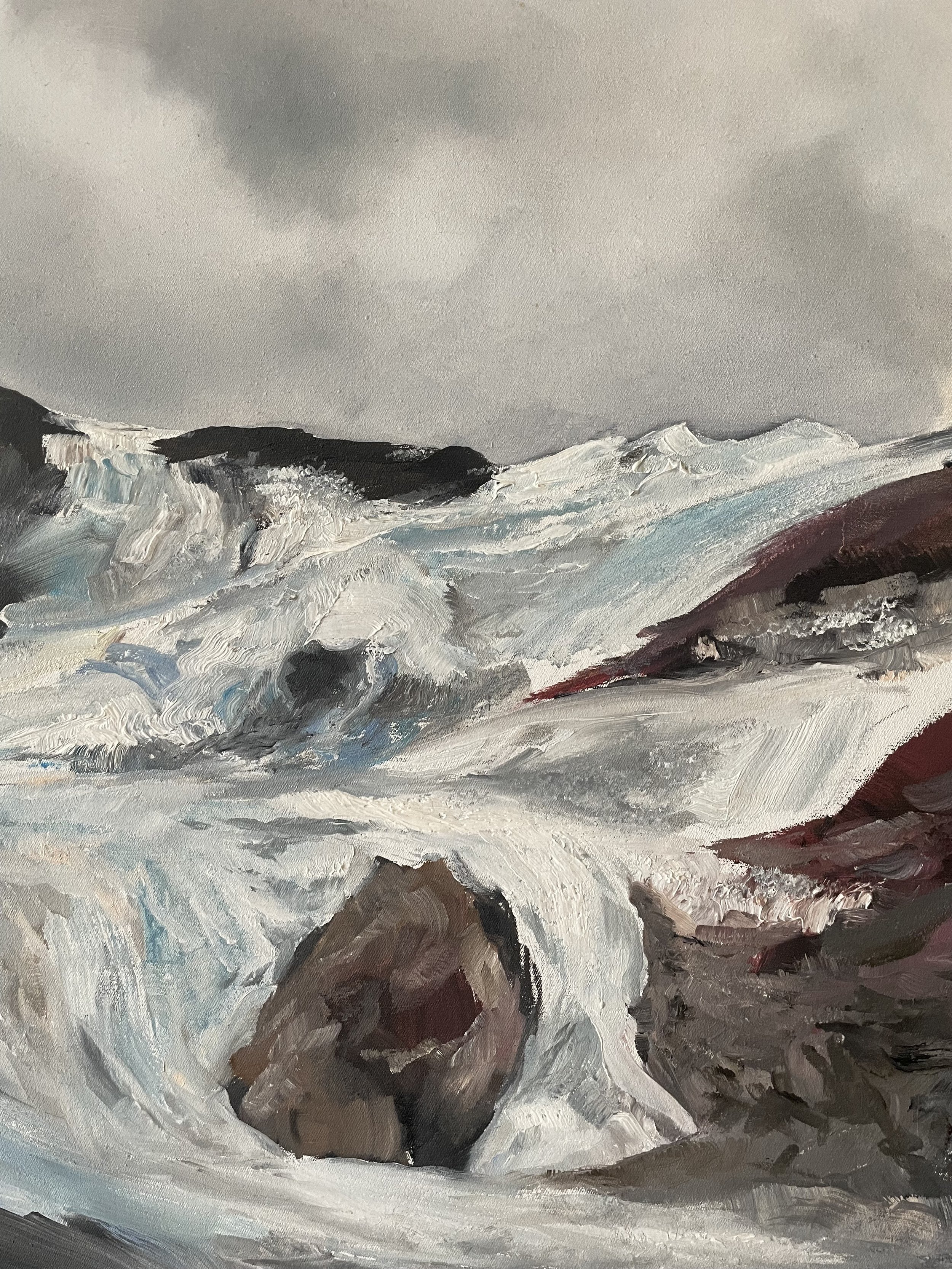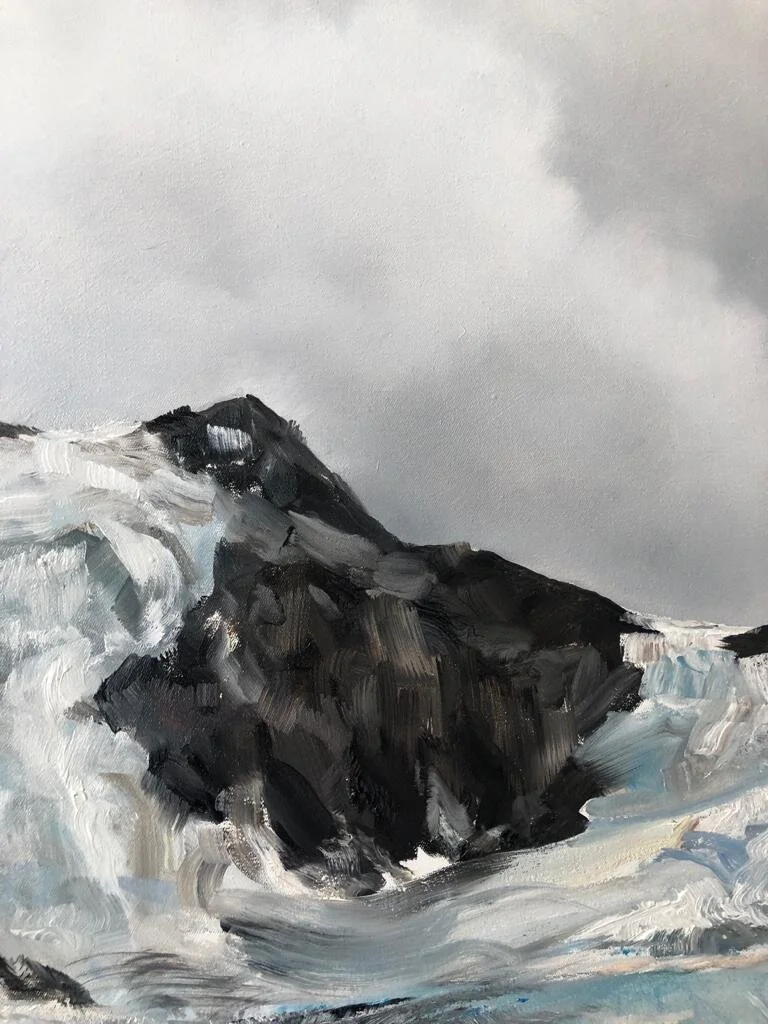Nothing Personal.
Berlin, 2020.

NOTHING PERSONAL
An exhibition with Daniel Michael Johnson.
Text by Emanuele Guidi
If it’s true, as I believe, that ‘the door handle is the handshake of the building[1]‘, then we could think about entering this exhibition, i.e. this apartment, as an act of reconciliation with an everyday gesture we have learned to forget over the course of the past few months. And since this apartment is friend to many people, this could also be considered an exhibition about welcome and farewell rituals, about ways of coming together and walking along.
I learned that in some southern countries, one chair is left empty at the dinner table to pay homage for members of the family who have passed away; this(?) the same chair is the one offered to unexpected guests to make themselves feel at home. A void is filled with a sentiment of anticipation. And maybe this exhibition is about that; about the potential of emptiness – that it’s by nature an instable and temporary status. It is about the moment in-between two visits, between two moves, remembering the one who just closed the door and the next one who will shake its handle again. So maybe it is about rites of passage, that are shared journeys to be carried on alone, or with the loved ones. Sometimes in high mountains, others in dark forests. Or even we could even(?) argue that this apartment, i.e. this exhibition, embodies those these(?) rites of passage or is are the destination of the journey itself, as Xavier de Maistre told us in 1794.[2]
I learned from Marcel Duchamp that a Guest plus a Host is a Ghost[3]…
…and for surely this exhibition is about that; about higher spirits and saints, about being healed or being poisoned, which sometimes might may(?) give offer(?) the same sense of euphoria.
I also learned other wordplays from his friends, like the one with a simple sound, with unclear origins that can be named(?) to many possible manifestations of life. Read it with me: Da Da.
One sound repeated two times,
like two are the rooms around which this exhibition unfolds, like the two rooms around which..
looking at each other through the door in-between.
This door reminds me of the mirror that Michel Foucault indicates as the place where ideas of Utopia and Heterotopia collapse into each other.
And I learned from him that if it’s true that a place can be placeless (utopia) it is also true that the same place is ‘capable of juxtaposing in a single real place several spaces, several sites that are in themselves incompatible[4]’ (heterotopia). And maybe this is the way we should look at this door and at the two works at its opposite sides.
It is about the possibility of affirming something, yet to be being accountable for its contrary: nothing personal.
Eventually, I learned from Erwin Panofsky that it is all about language and its limits; because if Et in Arcadia Ego is the point of departure ‘[it] could lead to reflections of (an?)almost opposite nature, depressing and melancholy on the one hand, comforting and assuaging on the other; and more often than not, to a truly "Romantic" fusion of both.[5]’
For your reference i put here the quotes I use from Panofski, about the misinterpretation of the translation of Et in Arcadia ego.
“The correct translation of the phrase ("Et in Arcadia ego") in its orthodox form is, therefore, not "I, too, was born, or lived, in Arcady," but: "Even in Arcady there am I," from which we must conclude that the speaker is not a deceased Arcadian shepherd or shepherdess but Death in person.”
“We can easily see that the new conception of the Tomb in Arcady initiated by Poussin's Louvre picture, and sanctioned by the mistranslation of its inscription, could lead to reflections of almost opposite nature, depressing and melancholy on the one hand, comforting and assuaging on the other; and more often than not, to a truly "Romantic" fusion of both.”
[1] Juhani Pallasmaa, The Eyes of the Skin: Architecture and the Senses, 1996
[2] Xavier de Maistre, Voyage autour de ma chambre / A journey round my Room, 1794.
[3] Marcel Duchamp, Crimpled candywrapper (flattened), with the wordplay ‘A Guest + A Host = A Ghost’, 1953.
[4] Michel Foucault, Of Other Spaces, 1984
[5] Erwin Panofsky, Et in Arcadia Ego: Poussin and the Elegiac Tradition, 1936
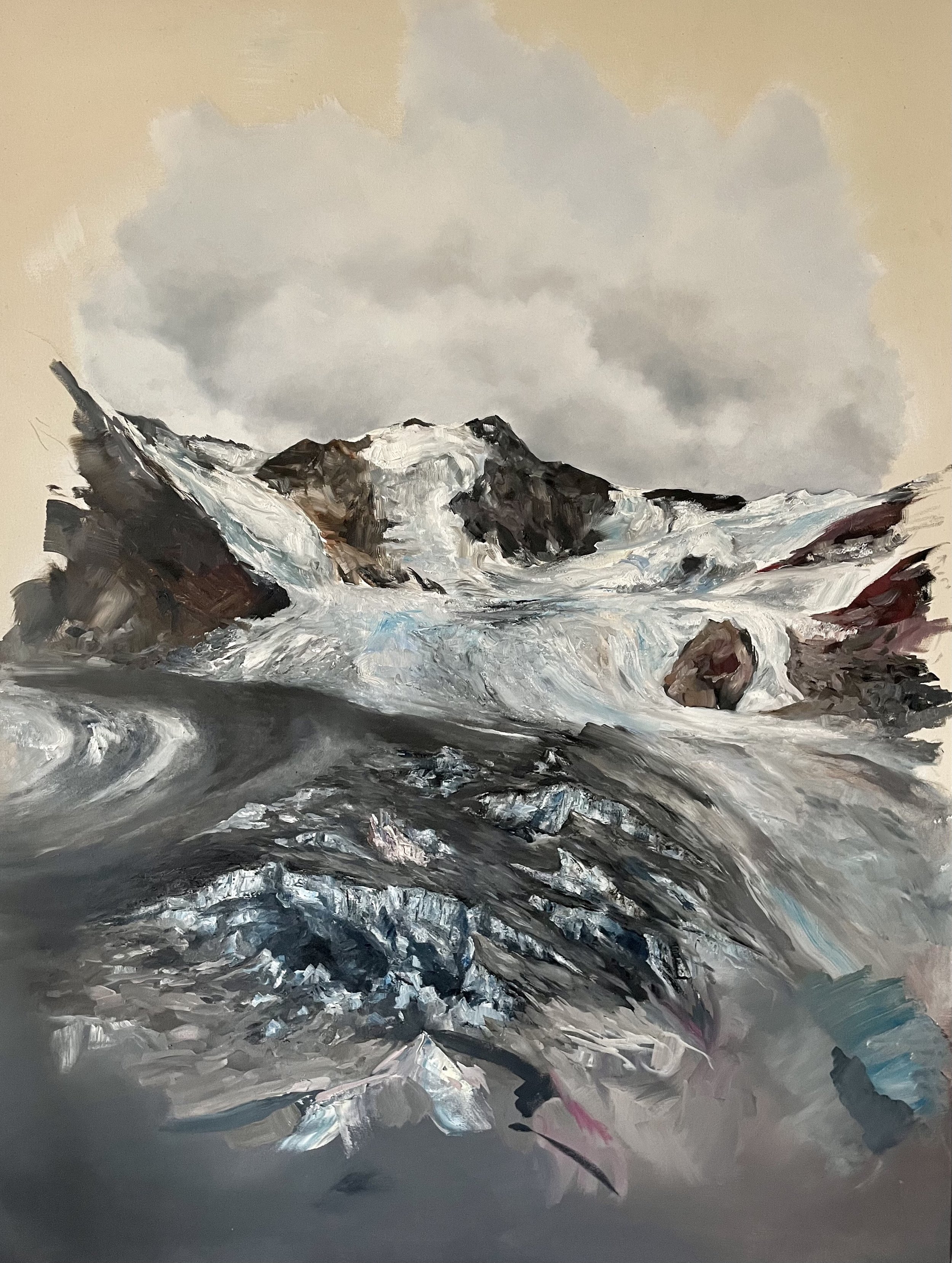
0 to ∞ (part i), 160x120, oil on canvas, 2020.
View of parts II to IV and close ups:
